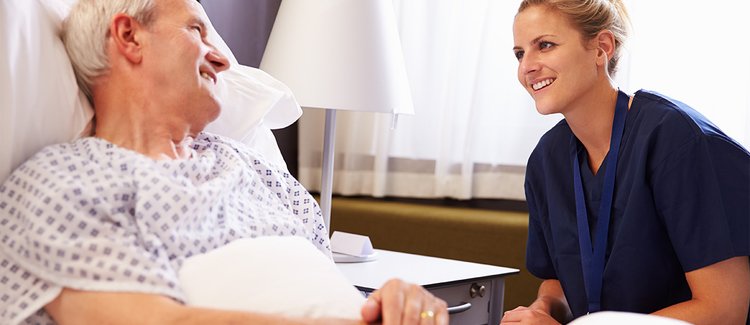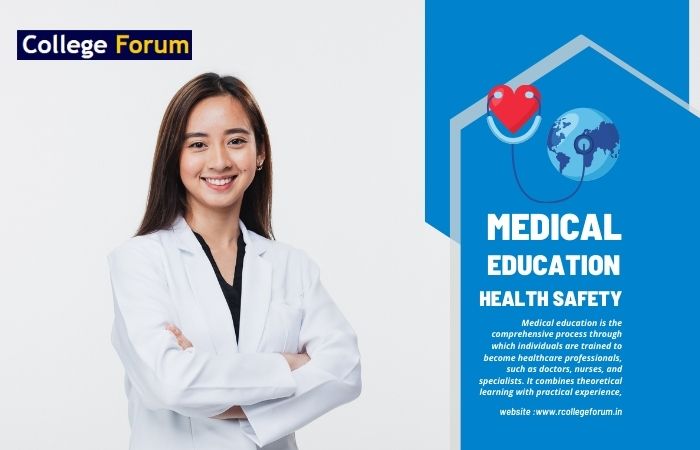Medical Education: The Importance of Clinical Rotations
Medical education itself is a broad process in which the future professional is taught and trained in skills, knowledge, and experience that will later help them manage the patients. Classroom learning and theoretical studies lay the foundation, but clinical rotations are the practical link that connects theory to actual medical practice. Clinical rotations form a part of any medical curriculum, adding hands-on experiences, exposure to many fields within medicine, and the possibility of working directly with patients under the guidance of senior professionals.
In this article, the critical role that clinical rotation plays in medical studies is discussed in depth, along with how it shapes the future of students pursuing medicine and the many benefits this particular training offers in raising holistic health workers.

1. What are Clinical Rotations in Medical Education?
Clinical rotations, also more commonly referred to as clerkships, refer to those periods during which a student of medicine is assigned to various medical specialties in hospitals and other healthcare facilities. These generally start after the initial years of theoretical studies that are usually followed, and this forms part of the practical training that a student of medicine needs to undertake as part of his or her study. During this stage, students work together with doctors, nurses, and other health workers, applying their academic knowledge in actual clinical settings.
2. Clinical Rotation Structure
Clinical rotations usually involve internal medicine, surgery, pediatrics, obstetrics and gynecology, psychiatry, emergency medicine, and many others. Each usually takes up to a few weeks or even months for the students to acquire some general ideas about that particular aspect of the clinical field.
3. Practical Skills Development in Medical Education
The other advantage is that through clinical rotation, the students can establish practical skills in medical education. This will help students to learn how to obtain histories, physical examination, and reaching clinical decisions when they are in direct contact with patients. Practical experience within this field would therefore be priceless as it allows them to hone such skills in diagnosis, communication, and problem-solving techniques-all of which are essential for the provision of good-quality patient care.
4. Exposure to a Range of Specialties
Clinical rotations offer students exposure to several medical specialties for them to explore the many varied aspects of medicine. This helps in making up their minds as to which branch of specialty they would want to embark on when going out into the workforce. It can be anything-surgery, pediatrics, or psychiatry-that often helps in deciding which path a student takes in medical education.
5. Enhanced Communication and Teamwork
Most activities in healthcare are a form of teamwork. Clinical rotations within medical education offer ample opportunities for participation by students in work processes as part of a multidisciplinary team composed of doctors, nurses, and other professionals allied in healthcare. In this context of participation in providing team-based care, learning occurs in effective communication and collaboration with other professionals in formulating a treatment plan, as well as the value of each professional’s role in the care being provided to the patient.

6. The Role of Patient Interaction
The patient interaction is one important part of the medical education, and this aspect gets effectively addressed in the clinical rotations. These interactions help students become empathetic towards their patients, assess their problems, and communicate the ways of treatments in an informative way yet reassuring. The development of a good bedside manner is an important skill that clinical rotations help cultivate.
7. Bridging the Gap Between Theory and Practice
Much as medical textbooks and lectures in the classroom provide a good theoretical background, the practice of medicine itself is often quite different from those found in books. Clinical rotations bridge the gap between theory and practice as students are thrown into hands-on diagnosis and management of patients. Such exposure helps the student appreciate how theoretical knowledge applies to a host of different clinical scenarios, further fortifying an understanding of the principles behind medical education.
8. Learning from Experienced Mentors
The clinical rotations engage students in hands-on interaction with already established physicians who mentor the students not only in practical training but also help the students to understand the world of medicine. Such observations and hands-on practice develop the finesse of medical procedures, patient care, and decision-making capabilities of the student by the seasoned professionals and thus enhance the scope of medical education.
9. Preparing for Medical Licensing Exams
Clinical rotations significantly help students in preparing for any medical licensing examination. Several knowledge and skills acquired during these clinical rotations apply to most questions and scenarios that would be presented during license examinations. This adds to the development of their clinical reasoning and management of the patient, therefore bringing them closer to success with the exams, an important milestone within their medical education journey.
10. Confidence in Medical Decision-Making
Confidence is a major component in medical studies, and it is through clinical rotations that students start developing confidence. As they are given more responsibilities in patient care and making decisions in real-time under the tutelage of their superiors, they gain the self-assurance they need to become competent and efficient healthcare providers. Clinical rotations give more possibilities to feel confident in an open and stimulating atmosphere for learning and development in medical education.
11. Accommodating Real-World Problems
The environment in a healthcare setting is often unforeseeable. A student is supposed to consider developing ways of overcoming challenges that they may face in the medical field. In clinical rotations, students get exposed to various cases such as from simple check-ups to complex medical conditions. This variation also develops in students the ability to think on their feet, adapt to various clinical scenarios, and handle emergency responses-critical skills that are expected to be learned in medical education.
12. Ethical and Professional Development
In addition to medical knowledge and technical skill development, clinical rotations also afford students the opportunity for some form of ethical and professional development. Most decisions that medical students must make or are a part of all relate to the care of patients. Through clinical rotations, students in the medical profession can gain an understanding of ethical principles guiding those in this field. In fact, this area of medical education is a major determinant in transforming individuals into responsible and compassionate healthcare professionals.
13. Networking and Career Opportunities
Clinical rotations offer the student great opportunities to network within a chosen specialty. These often result in potential future job opportunities, residency placements, and research collaboration. A powerful professional network established during this phase in medical education can be very advantageous for the student’s career path.
14. The Place of Clinical Rotations in Applications for Residency
Residency applications are one of the most critical steps in the career of a medical student, and performance of clinical rotation often plays a significant role in the selection of residency. Letters of recommendation from mentors, evaluation reports, and the skill sets demonstrated during rotations all play a decisive role in determining residency. Good performances during the clinical rotations can make the difference in this competitive process.
15. The Future of Clinical Rotations in Medical Education
As medical education evolves, so will clinical rotations. With each passing day, advancement in technology allows even for virtual simulations, telemedicine, and remote patient monitoring-possibly even future medical students have different ways to receive clinical training. However, hands-on experience in real clinical settings is bound to remain an integral part of medical training.
Conclusion
The clinical rotations are the very backbone of medical education, presenting hands-on experiences, exposure to a wide array of different specialties, and building important skills in the care of patients. In simple terms, they make them ready for the actual world of medicine, enhance their communication and teamwork skills, and give them more confidence in medical decision-making. As the students go through the rotations, they not only become competent in their clinical abilities but grow into professionals, molding a potential career in medicine.
Frequently Asked Questions
Q1 How long is the duration of time devoted to clinical rotations while studying medicine?
Usually, it ranges from a number of weeks up to several months, considering a specific specialty.
Q2 What is the role of mentors during clinical rotations?
Mentors guide students in hands-on training, giving insights, feedback, and professional advice.
Q3 Are clinical rotations important for all medical students?
Yes, all medical students have to participate in clinical rotations since this forms the core of their medical education and provides a very essential hands-on experience.
Q4 Can clinical rotations help in choosing a medical specialty? Most definitely.
Exposure to different specialties through rotation will lead to informed choices in career paths.
Q5 How do clinical rotations influence residency applications?
The strong performance during rotations coupled with mentor recommendations greatly influences residency placements.







